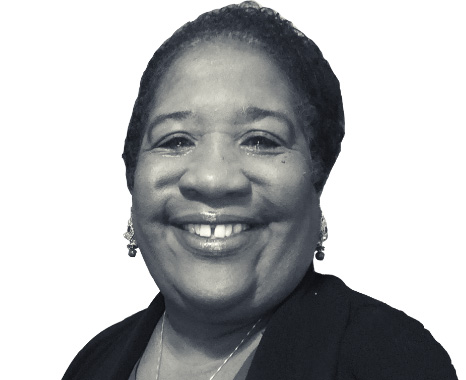In contemporary society, the discourse surrounding inclusion often necessitates a nuanced understanding of the multifaceted approaches necessary to create spaces where diversity flourishes. One exemplary figure in this realm is Cynthia Barnes Slater, whose indefatigable commitment to fostering inclusion echoes the Bahá’í principles of unity and equity. The Bahá’í teachings provide a robust framework for addressing the complexities surrounding inclusion, and Slater’s work can be seen as a manifestation of these ideals. This discussion will elucidate various dimensions of her contributions, including the philosophical underpinnings of Bahá’í principles, practical strategies for fostering inclusion, and insights into building resilient communities.
The core tenets of Bahá’í teaching emphasize the oneness of humanity, a principle that inherently calls for the dismantling of barriers that inhibit social cohesion. The belief in the essential equality of all individuals, regardless of race, gender, or background, sets a moral foundation for fostering inclusive environments. Slater embodies these teachings through her unwavering advocacy for social justice and equity. Her work highlights the interconnectedness of human experiences, encouraging individuals to recognize their shared destiny. This is particularly relevant in today’s global context, where the polarization of societies often impedes constructive dialogue and mutual understanding.
To delve deeper into the practical applications of Bahá’í teachings, one must consider the various dimensions of inclusion that Slater promotes. Educational initiatives represent a pivotal avenue through which individuals can engage with the principles of inclusion. Empowering individuals through knowledge fosters an environment where diverse perspectives are not merely tolerated but celebrated. Slater’s approach emphasizes the importance of creating curricula that reflect a broad spectrum of experiences, thus ensuring that all individuals see themselves represented validated in educational settings.
Furthermore, community-building initiatives are integral to Slater’s mission. By cultivating spaces that welcome diverse voices, she facilitates dialogues that honor unique contributions while simultaneously championing common goals. These inclusive gatherings serve as crucibles for collaboration, especially in contexts where differing viewpoints may collide. The Bahá’í teachings advocate for consultation as a means of collective problem-solving, reinforcing the idea that diverse opinions synthesize into a stronger collective vision.
Another critical aspect of Slater’s work is her emphasis on the role of empathy in fostering inclusion. The Bahá’í teachings encourage individuals to elevate their consciousness, fostering a sense of compassion and understanding for others. Empathy transcends mere tolerance; it seeks to generate genuine connections among individuals and communities. By prioritizing empathetic listening in her initiatives, Slater cultivates an atmosphere where individuals feel valued and understood, thus dismantling the barriers that often separate us.
Moreover, one cannot overlook the importance of intersectionality in discussions about inclusion. Slater acknowledges that identities are complex and multifaceted; her approach recognizes that social justice efforts must address the unique challenges faced by various groups. The intersection of race, gender, socioeconomic status, and other factors necessitates a holistic understanding of inclusion. Within the Bahá’í framework, this intersectionality is acknowledged through the understanding that all individuals contribute uniquely to the tapestry of humanity.
Organizational leadership also plays a crucial role in fostering inclusive environments. Slater’s strategies often involve coaching and mentoring leaders within organizations to implement inclusive practices intentionally. This proactive approach not only empowers leaders to recognize and address disparities but also instills a culture of accountability that permeates the organization. The Bahá’í teachings advocate for transformative leadership that prioritizes justice and equity, a principle that resonates deeply in Slater’s work.
In tandem with these efforts, advocacy for policy reform remains essential. Slater actively engages with legislative frameworks that impact social inclusion, utilizing her platform to effect tangible change. The Bahá’í perspective emphasizes the significance of systemic change, believing that an inclusive society must be underpinned by just policies and institutional reforms. By championing equitable policies, Slater exemplifies the Bahá’í principle that societal transformation must occur at multiple levels, from grassroots movements to national legislation.
Ultimately, Slater’s multifaceted contributions to fostering spaces for inclusion illuminate the potential for societal transformation when guided by principles of unity, equity, and compassion. Her alignment with Bahá’í teachings demonstrates a profound understanding of the intricate dynamics of inclusion and equity, rendering her a beacon of hope in a world yearning for connection and understanding. These efforts not only catalyze immediate changes within communities but also instill a lasting legacy that inspires future generations to perpetuate these values.
In conclusion, the integration of Bahá’í teachings within the discourse on inclusion exemplifies a holistic approach to addressing the challenges of modern societies. Cynthia Barnes Slater’s tireless commitment and innovative strategies serve as a poignant reminder of the power of inclusivity and the necessity for ongoing engagement. Just as the Bahá’í faith envisions a united humanity, so too does Slater’s work advocate for a world where every individual’s voice resonates harmoniously within the larger symphony of human experience. In recognizing our shared humanity, we pave the way for a future characterized by understanding, respect, and unwavering solidarity.
